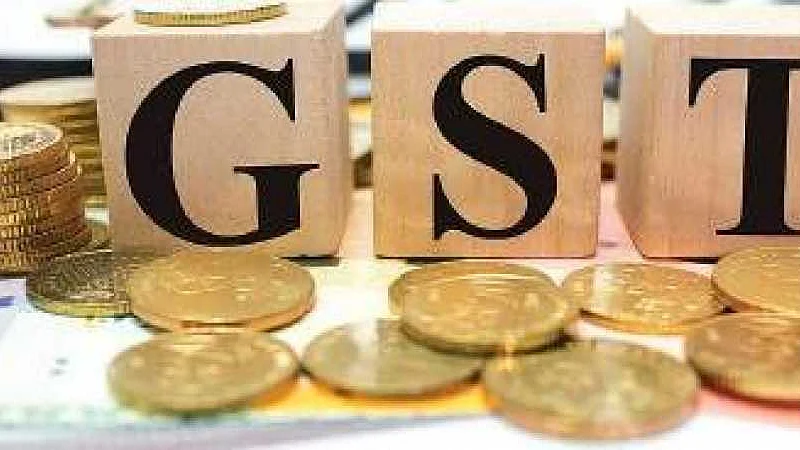Move to raise GST may push us into a full-blown recession
Raising the base rate from 5% to 9-10% is a disaster waiting to unfold as consumption is already on the decline and 3 crore Indians have been forced back into poverty

Within a span of a year, the government has sent the economy and fiscal management on a free-fall. The government has tried all options to raise every penny they could but the harder they try, the worse it gets.
The government’s move to raise GST rates could well be the tipping point for the economy; this is a blow that may well push us into a full-blown recession.
While tinkering with GST rates seems to have emerged as the favourite pastime for the Finance Ministry, the move to move the base slab rate from 5% to 9-10%, as reported, could mean serious trouble. While it would surely unleash a fresh wave of inflation, it could further hurt consumption, putting more pressure on revenues.
This mess, however, is of the government’s own making. After giving corporates tax breaks that would cost the economy ₹1.45 lakh crore, the government hopes that raising the GST rates would bring in an extra ₹1 lakh crore a year. Then on Saturday, Finance Minister Nirmala Seetharaman indicated that she is thinking about an income tax rate cut. An increase in GST rates may be necessary considering the fact that five state governments are contemplating to sue the centre over non-payment of compensation due to the states. The centre owes ₹12,000 crores to Kerala, Delhi, Rajasthan, Punjab and West Bengal but poor GST collections leave the government with little room to pay the states on time. Worse, the monthly compensation bill would cross ₹20,000 crores in the coming months, pushing the government into fiscal distress.
Put all these things together, you begin to wonder if the Finance Minister has a plan for getting the economy out of the woods or is she and her team just thinking of ways to remain in the news and appear busy?
Good news, bad news doesn’t really matter anymore, it is slowly becoming clear that we are in the middle of one glorious mess.
Alarm bells are ringing really loud this year in the Finance Ministry revenues have been way short of targets. The government could meet only 37% of the revenue targets into the first half of the year at a time when this should have been in the low 40s. Factor in the cut in Corporate Taxes and you realize that the government is going to end up way short of targets this year. The government is sure to miss its fiscal deficit targets this year unless the government cuts down of expenditure.
Signs of expenditure cuts are already visible as the government has disbursed ₹36,000 crores under the PM Kisan Yojna till November 30, the first eight months. The government had allocated ₹ 75,000 crores to the scheme in July for this fiscal but it seems unlikely now that they would go beyond ₹50-55,000 crore this year. We can expect spending cuts across other schemes, as we go forward.
The government is under stress and now seems to be trying to make up for the shortfall in direct taxes by raising more money through GST.
While this might be the only option that they may have left, it would only mean greater stress on consumption and adding to the slowdown and perhaps running the risk of a further slip in tax collections.
With agriculture growing at just about 2 per cent, no real hike in rural wages and a 0.1% negative growth in the industry, the working class has very limited purchasing power left, raising the base rate from 5% to 9-10% would be like a blow in the stomach. This is a disaster waiting to unfold as consumption is already on the decline and 3 crore Indians have been forced back into poverty.
As if this is not enough, the government is now turning to put additional burden on the salary-earning middle class by putting branded atta and even hotels that cost ₹1000 a room-night under a higher GST bracket.
This would mean that consumption of goods and services would cost more and could act as a deterrent in times when cutting costs is on everyone’s mind.
This, however, poses a bigger question. Will an increase in tax rates add to the slowdown? The government announced a tax cut in July 2017 and this reduced the effective rate from 14.4% to 11.6%. If people are finding it difficult to sustain consumption at 11.6%, will they not be forced to cut down consumption further to stay within their monthly budgets?
The Finance Minister now has about 50 days to present her new budget and with growth slipping and a majority of Indians getting restless about their future, the government knows that it is running out of options. It played the only card it had by reducing Corporate Taxes and that may deliver investments and jobs only when consumption revives. There is nothing on the horizon to suggest that consumption is going to go up anytime soon.
So the government is going to do the only thing it can, raise GST rates. It would make everything a little more expensive and you have to cut down expenses, a little bit more. Get used to it, things are going to be like this for a while.
Follow us on: Facebook, Twitter, Google News, Instagram
Join our official telegram channel (@nationalherald) and stay updated with the latest headlines
